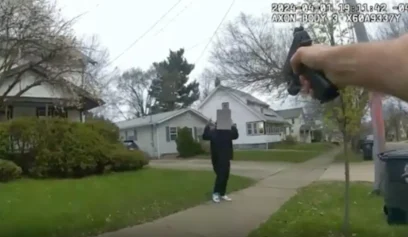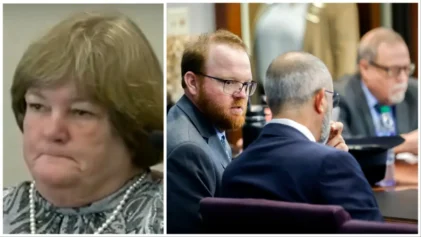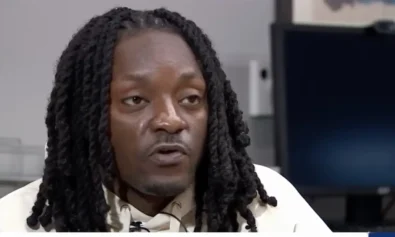Federal charges have been filed against a New York doctor and seven of her associates for smuggling and distributing narcotics. The Staten Island medical professional is said to be the ringleader who allegedly pumped 1.2 million oxycodone pills, worth $24 million, into the streets.
On Wednesday, Oct. 12, the United States Justice Department started the ball rolling on a 10-count indictment of eight drug traffickers canvasing two boroughs of New York City.
The officers, working to gather intelligence from multiple agencies, executed a search warrant to recover several hundreds of thousands of dollars from Leticia Smith’s home connected to a large illegal drug enterprise operated by Dr. Somsri Ratanaprasatporn out of her Brooklyn office located at 2108 Linden Blvd. worth millions of dollars.
Ratanaprasatporn was based out of the Borough of Kings, despite living in the Rossville section of Staten Island, the Justice Department said in a release.
Authorities allege in court documents, the doctor worked with Smith, Bassam Amin, Omar Elsayed, Yousef Ennab, Michael Kent, Anthony Mathis, and Raymond Walker, for almost four years, selling the drugs to the public under the guise of medical care.
All eight have been arrested and charged with conspiracy to distribute and possess with intent to distribute oxycodone, among other related crimes.
Additionally, Smith and Kent have been charged with money laundering, and at the time of the Wednesday bust, authorities stated, Kent allegedly tossed two guns out the rear door of their home.
Department Of Investigation Commissioner Jocelyn E. Strauber said in a statement, “These defendant medical professionals and their co-conspirators supplied more than 1.2 million oxycodone pills to the streets of New York City, promoting the illicit trade of dangerously addictive opioids.”
“DOI will continue to work tirelessly with our federal and law enforcement partners to ensure that pill mills such as this one are exposed and shut down and that the individuals who run them are held accountable,” she continued.
Each member of the team was arraigned on Wednesday before United States Magistrate Judge Robert M. Levy.
“Doctors and medical professionals have a professional obligation to do no harm, but, as alleged, the defendants callously supplied more than one million pills to traffickers for distribution, resulting in dangerous opioids flooding the streets of this district,” stated U.S. Attorney Breon Peace.
It is alleged by the prosecution the ring distributed more than 11,000 prescriptions of the drug between December 2018 to October 2022.
The operation was not very complicated. Customers would go to the front of the East New York location and drop off payment of $200 in the external office mailbox. Once the payment was received, the customer would receive, according to a court detention memo, an electronic prescription for 30 mg of oxycodone.
These customers were monitored by Kent, Mathis, and Walker, the prosecutors alleged.
Prosecutors said Smith, who served as the office manager for Ratanaprasatporn’s practice, was granted access to the electronic prescription program after he gave her login credentials.
The customers were instructed to pharmacists, Amin, Ennab, and Elsayed, who filled the prescriptions at their drug stores located in both Brooklyn and Staten Island.
Ratanaprasatporn would call the pharmacists to validate the prescription and also receive paperwork regarding each order’s authorization.
She told an undercover Drug Enforcement Administration agent over the phone that she had issued oxycodone prescriptions to half a dozen patients to help their fabricated “back pain.”
In one call, intercepted by the DEA, both the doctor and the office manager talked about authorizing the highly addictive opioid to patients.
The feds caught Smith saying to Ratanaprasatporn “anybody could call and say they’re [the patient], and then just come and drop it, you know. Drop it in the box and then we don’t know, we can’t see them.”
A court detention memo states that after the DEA agents interviewed the doctor at her Staten Island home to ask her why she issued nine prescriptions for oxycodone to a deceased patient (after the date of his death), she and Smith discussed fixing medical files to make them look like the medical office always credentials patients by acquiring their identification card whenever oxycodone was prescribed.
The government says the doctor posed as a modest medical professional in one of the poorest neighborhoods in Brooklyn while leading an eight-figure drug campaign.
Frank A. Tarentino, Special Agent-in-Charge, Drug Enforcement Administration, New York Division (DEA) said, “This structured drug trafficking ring’s operations started in a doctor’s office and ended with $24 million worth of diverted oxycodone on the streets.”
The indictment comes on the same day that Mayor Eric Adams signed legislation called Intro 56 to help prevent users from overdosing on drugs at clubs, concerts, and other nightlife venues.
The city will now provide free naloxone kits of Narcan to venues in New York City to administer in the case of an opioid overdose.
According to a release from the mayor’s office, “Naloxone is a safe medication that can be used to reverse the effects of an opioid overdose. At a time when yet to be released overdose deaths from 2021 are expected to exceed 2020, which saw the highest number of overdoses since record keeping began, this bill will put lifesaving tools into the hands of more New Yorkers and train them on how to save lives.”
Mayor Adams stated, “The overdose crisis has been inflicting pain and heartache on our city for too long, so now is the time to take action.”
“One of our city’s residents loses their life to an overdose every three hours, so it is essential we use every tool in our arsenal to tackle this crisis,” he said. “By providing Narcan kits to New York City nightlife establishments and educating staff on how to use it in the event of an overdose, we will save lives, and build a healthier, safer city for all.”
The mayor lamented the city has “lost too many New Yorkers to overdoses and too many families and communities have been torn apart, and while this law will not bring back those we have lost, if it can save a single life it is worth it.”


